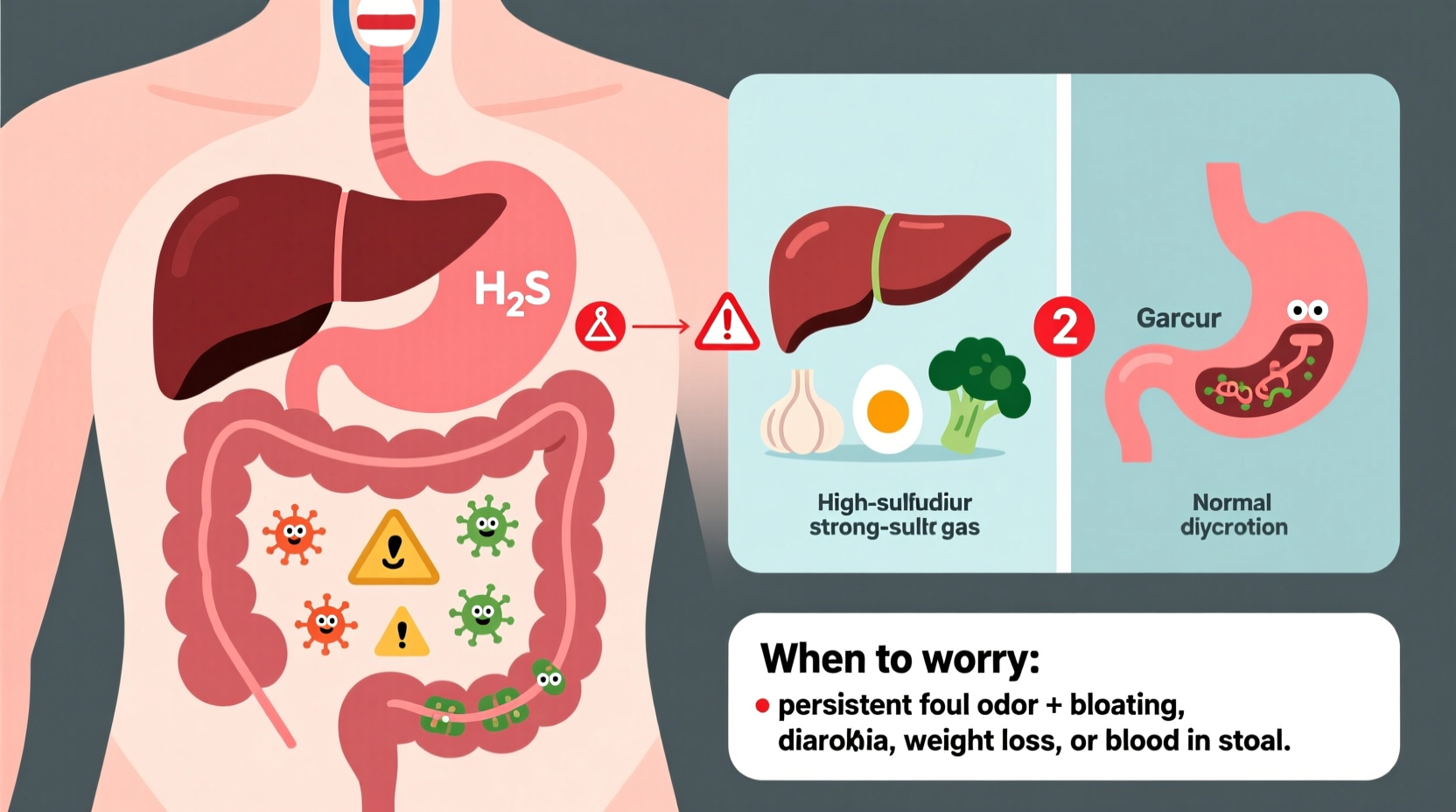Foul-smelling flatulence is a universal human experience, yet it often carries embarrassment or concern. While occasional smelly gas is normal, consistently pungent emissions may signal dietary imbalances or underlying health conditions. Understanding the science behind intestinal gas, identifying triggers, and recognizing red flags empowers individuals to manage digestive wellness confidently.
The Science Behind Smelly Gas

Flatulence results from the breakdown of undigested food by bacteria in the large intestine. These microbes produce gases such as methane, hydrogen, carbon dioxide—and crucially—hydrogen sulfide, which gives rotten-egg odor to particularly noxious emissions. The stronger the smell, the higher the concentration of sulfur-containing compounds.
Diet plays a central role. Foods rich in sulfur—like eggs, red meat, cruciferous vegetables (broccoli, cabbage, Brussels sprouts), garlic, and onions—are primary contributors. When gut bacteria ferment these foods, they release volatile sulfur gases. Additionally, certain food additives, especially sulfites and preservatives in processed meats, can amplify odor intensity.
“Hydrogen sulfide is not just responsible for the smell—it can also irritate the gut lining in excess, potentially contributing to inflammation.” — Dr. Lena Torres, Gastroenterologist at Boston Digestive Institute
Common Causes of Foul-Smelling Farts
- High-sulfur diet: Frequent consumption of animal proteins and specific vegetables increases sulfur gas production.
- Lactose intolerance: Inability to digest lactose leads to fermentation by gut bacteria, causing bloating and smelly gas.
- Artificial sweeteners: Sorbitol, xylitol, and other sugar alcohols found in sugar-free gum and candies are poorly absorbed and fermented in the colon.
- Swallowed air: Eating quickly, chewing gum, or drinking carbonated beverages introduces excess air, increasing gas volume and sometimes odor.
- Gut microbiome imbalance: An overgrowth of sulfur-producing bacteria like Desulfovibrio species can make gas consistently foul.
When to Worry: Red Flags That Demand Medical Attention
While most cases of smelly gas are benign and diet-related, persistent symptoms combined with other warning signs may indicate gastrointestinal disease. Seek medical evaluation if you experience:
- Chronic diarrhea or constipation lasting more than two weeks
- Bloody stools or black, tarry feces
- Unintentional weight loss without changes in diet or activity
- Severe abdominal pain or cramping
- Nighttime diarrhea disrupting sleep
- Sensation of incomplete bowel emptying
These symptoms could point to conditions such as irritable bowel syndrome (IBS), inflammatory bowel disease (IBD), small intestinal bacterial overgrowth (SIBO), celiac disease, or even colon cancer. A healthcare provider may order blood tests, stool analysis, breath tests for SIBO or lactose intolerance, or perform endoscopic exams based on clinical suspicion.
Case Example: Persistent Odor Leading to Diagnosis
Mark, a 42-year-old office worker, noticed his flatulence had become unusually foul over six months. He initially dismissed it as diet-related but began experiencing fatigue, joint pain, and alternating diarrhea and constipation. After tracking his symptoms and eliminating dairy and gluten temporarily, he consulted a gastroenterologist. Blood tests revealed elevated antibodies for celiac disease, confirmed by intestinal biopsy. Upon adopting a strict gluten-free diet, his digestive symptoms—including malodorous gas—resolved within eight weeks.
Practical Steps to Reduce Fart Odor
Managing smelly gas often begins with lifestyle and dietary adjustments. Implementing targeted changes can yield noticeable improvements within days.
- Adjust your diet: Reduce intake of high-sulfur foods. Substitute eggs with plant-based proteins, limit red meat, and cook cruciferous vegetables thoroughly to reduce raffinose sugars.
- Incorporate probiotics: Consume live-culture yogurt, kefir, sauerkraut, or take a clinically studied probiotic strain like Lactobacillus reuteri or Bifidobacterium infantis to support balanced gut flora.
- Eat slowly: Chewing food thoroughly reduces swallowed air and improves digestion, minimizing fermentation in the colon.
- Stay hydrated: Water aids digestion and helps move waste efficiently through the intestines, reducing stagnation and bacterial overgrowth.
- Avoid sugar alcohols: Check labels on gums, mints, and “sugar-free” snacks for sorbitol, mannitol, and xylitol.
| Do | Don’t |
|---|---|
| Eat smaller, frequent meals | Overeat in one sitting |
| Drink herbal teas like peppermint or ginger | Consume carbonated drinks regularly |
| Walk after meals to stimulate digestion | Lie down immediately after eating |
| Keep a food-symptom diary | Assume all gas is normal without tracking patterns |
Frequently Asked Questions
Can smelly farts be a sign of infection?
Yes. Certain gastrointestinal infections, particularly those caused by Giardia lamblia or Clostridioides difficile, can result in extremely foul-smelling gas accompanied by diarrhea, nausea, and dehydration. If symptoms persist beyond a few days or include fever, seek medical testing.
Is it normal for farts to smell worse with age?
Not necessarily. While metabolism slows and gut motility decreases with age, significantly worsening odor should not be considered inevitable. Age-related changes in digestion may require dietary tweaks, but sudden or severe shifts warrant investigation to rule out malabsorption or structural issues.
Do probiotics really help with smelly gas?
Some strains do. Research shows that specific probiotics can reduce hydrogen sulfide production by modulating bacterial balance. However, effects vary by individual. It may take 4–6 weeks of consistent use to observe improvement, and some people report temporary increases in gas during initial adjustment.
Conclusion: Take Control of Your Digestive Health
Persistent foul-smelling gas is rarely an emergency, but it’s not something to ignore indefinitely. Most cases respond well to dietary refinement and mindful eating habits. Yet, when odor coincides with systemic symptoms like weight loss, pain, or bowel changes, professional assessment becomes essential. Digestive health reflects overall wellness—addressing gas isn't just about comfort, but about understanding how your body processes fuel and maintains balance.









 浙公网安备
33010002000092号
浙公网安备
33010002000092号 浙B2-20120091-4
浙B2-20120091-4
Comments
No comments yet. Why don't you start the discussion?